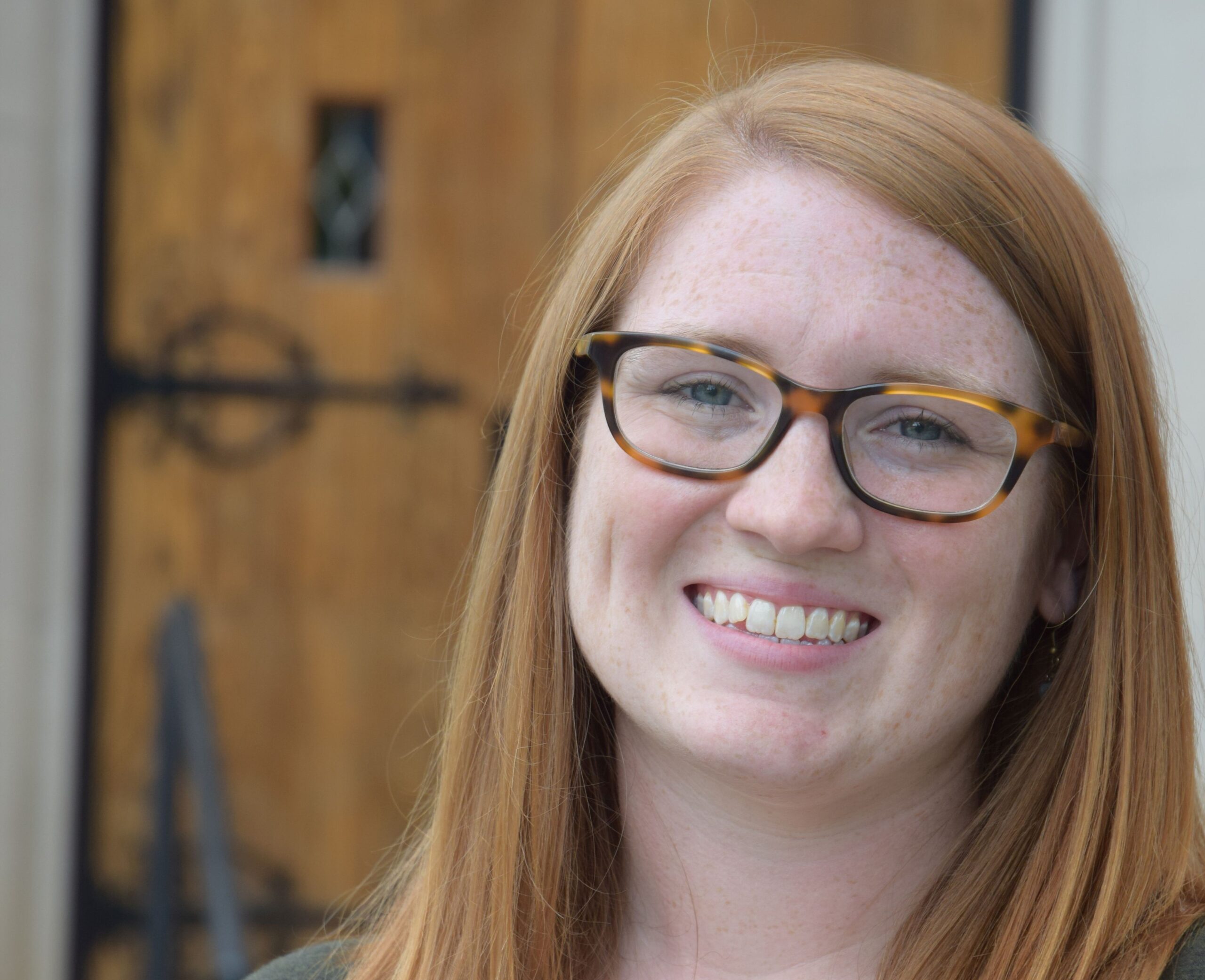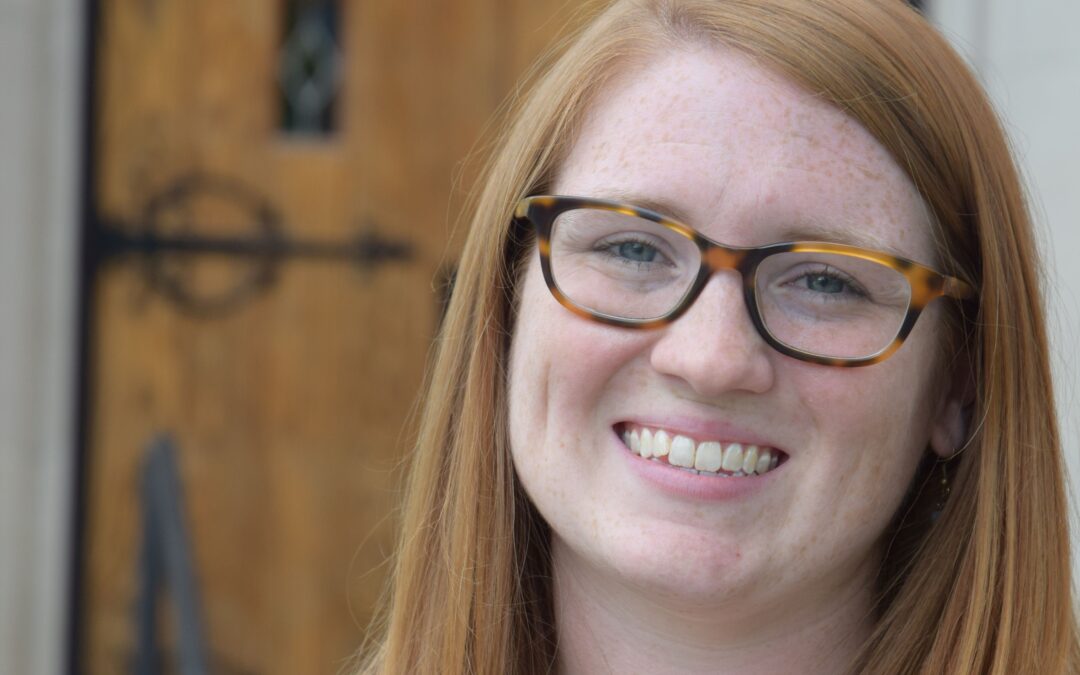 Honor God’s Diversity – “Centering Voices from the Margins”
Honor God’s Diversity – “Centering Voices from the Margins”
Rev. Emily Wilmesherr
Decatur Presbyterian Church
May 29, 2022
Matthew 15:21-28
21 Jesus left that place and went away to the district of Tyre and Sidon. 22 Just then a Canaanite woman from that region came out and started shouting, “Have mercy on me, Lord, Son of David; my daughter is tormented by a demon.” 23 But he did not answer her at all. And his disciples came and urged him, saying, “Send her away, for she keeps shouting after us.” 24 He answered, “I was sent only to the lost sheep of the house of Israel.” 25 But she came and knelt before him, saying, “Lord, help me.” 26 He answered, “It is not fair to take the children’s food and throw it to the dogs.” 27 She said, “Yes, Lord, yet even the dogs eat the crumbs that fall from their masters’[a] table.” 28 Then Jesus answered her, “Woman, great is your faith! Let it be done for you as you wish.” And her daughter was healed from that moment.
Who are you in this story?
This is not an easy or comfortable question to ask ourselves about any biblical text but it is incredibly important. Are you the woman pleading for help on behalf of another yet ignored and disrespected? Are you her daughter who we don’t even see but who is in need of help but her voice is silent? Are you Jesus dismissing the cry for help? Are you the disciples, irritated by the people who disrupt your space? As much as I do not want to admit it, I can identify with Jesus who ignores and dismisses another human being. I don’t want to acknowledge that I’ve been in this place of trying to separate myself and my comfort from the pain and the needs of others.
But if I’m honest, this is where I’ve found myself. Each time we enter into this story, we might find ourselves in the shoes of different people. But today, where do you find yourself? Be honest, no matter what you find because in these moments we can invite God into examine our hearts and re-shape them.
The scripture today is full of so much and it is very challenging, one where we see Jesus acting differently than we would expect. We expect to see Jesus pay attention to the Canaanite woman or at the very least acknowledge her presence. We expect to see compassion and hear deep wisdom from Jesus, but that is not what we see. Jesus’ response to the woman began in silence and is followed by annoyance. Then he finally speaks but says that his mission is only for the “lost sheep of Israel” which does not include her. Then he completely dehumanizes her and her daughter.
Jesus was entering into the land of the Canaanite woman and yet she was the one entering into a power imbalance by coming to Jesus – she was a woman and a Gentile. From the very first moment she approaches Jesus, she speaks with respect and persistence. The Canaanite woman addresses Jesus as Lord, Son of David. She is acknowledging Jesus’ royal lineage, associating herself with the Jewish crowds who acclaim Jesus while also separating herself from those who do not. These titles are used at the beginning of Matthew’s narrative in Jesus’ genealogy where we hear that Jesus’ is related to 2 Canaanite women: Rahab and Tamar. This anonymous woman’s foremothers are a part of Jesus family. She was seeking to make a connection to Jesus. The fact that her people’s blood runs through his veins and that his people’s blood runs through her veins does not move Jesus!
In spite of the way she was treated, she continued to speak and act with respect and perseverance. She heard of Jesus’ miraculous acts and believed that he could heal her daughter. She was not going to leave. She knew that there was no one else to appeal to Jesus on behalf of her daughter besides herself. Her daughter’s voice needed to be heard and centered.
While the faith of the Canaanite woman is profound and courageous and certainly should be lifted up, however, we cannot expect those on the margins to be the only ones working towards a better life. We must see each other as a part of the same body, made by God’s hands. When one of the parts of the body is not able thrive, the other parts much step up on behalf of them. Our needs and wants must be set aside in order to address the pressing needs of another. Their needs must be brought to the center of the conversation.
Centering voices from the margins brings tension to the surface between our claim to value diversity and the real lived experiences of people who can evaluate our efforts. This requires us to de-center ourselves, set our experiences aside and truly listen to other’s whose lives are different from our own. This active listening must be followed up with action. It also requires us to put the experiences of others in the forefront. In these spaces we can grow and we can begin to truly honor God’s diverse world.
The injustice towards those on the margins is horrific. We have gotten to a place where when the life of another doesn’t make sense or we feel our lives as they are, are in jeopardy, we resort to violence. Rather than embracing and honoring the diversity in God’s world, we discount other’s lived experiences. Just as the people in the story of the Elephant in the Dark, we argue about who is right and wrong, we dig in our heels and demand that our way is the only way or our experience is the only experience. If we only stop and listen to one another, we might see a bigger and more complete picture of God’s creation.
This week the news of the Robb Elementary School shooting was hitting my heart from a lot of angles. One morning I was listening to some parents of the young victims share their experience. I felt my heart get heavier; I felt the tears well up in my eyes as I tried to choke them back and my gut reaction was to turn off the television. I could do it; the remote was in my hands. I was in control but I kept hearing God say just stop, listen, and feel so I did. I cried so deep my body shook with sorrow, the tears wouldn’t stop. Parents talked about the emptiness they felt, they talked about the plans their children had for summer and upcoming birthdays, how they can’t believe this is their new reality, how can this be happening to children again. One mother never uttered a word as she held the handmade prayer jar that her daughter had made for mother’s day. I cannot begin to imagine this pain, but I must stop, listen, and feel their
stories. Our children are the part of the body that is not thriving and depend on us to speak on their behalf and center their experience in our conversations.
Too often we are afraid of or refuse to empathize with the people whose experience is different from our own. We don’t want to acknowledge that pain and oppression exist. We don’t want to admit to ourselves we might have played a part in keeping their voices and experiences silent. We are afraid of what feelings it would bring up for us. If the oppression, injustice, or pain is not happening in our house and neighborhood or does not impact our race, age, gender, class, or sexuality, then we dismiss it as unwelcomed, unjustified noise. Our ability to disconnect is a privilege. Those who live on the margins of society do not have that same privilege. This is their reality every single day. No matter how much they want to disconnect from it, it is out of their control.
Despite affirming that all people are made in God’s image, we tend to gravitate to those who are most like us in our relationships, books we read, song we listen to, and information we absorb. Historically it is the voices of the dominate culture that are heard and taught. But if God created us with different experiences and cultures, we cannot truly experience the breadth of God’s creation without hearing the testimonies, wisdom, and stories of all people’s experience.
One of the powerful things that Jesus teaches us in this story is the importance of taking in new information and growing from new experiences and new understanding. The woman showed great faith and that got Jesus’ attention. If you continue reading the Gospel of Matthew you see how Jesus ministry evolved from this experience. He went from saying that his mission was only for the lost sheep of Israel to commanding his followers to make disciples of ALL nations. Jesus has not only heeded her perspective but centered her theology as the purpose of his movement.
Jesus was willing to change his perspective. In spite of what he was taught and the experiences
he had, he let his encounter with the Canaanite woman change how he saw the world and how he viewed his ministry. As Christians we believe that God’s love never ends and God’s mercies are new with the dawn of each day. If we proclaim this message, we must find a way to trust that God can change our hearts and minds. When a friend of mine has learned something new, instead of holding tight to what she’s known, she’ll say, “oh look, better information, I was wrong before but I don’t have to be like that anymore.” Changing our minds, growing our understanding should be something that we embrace and when we do we will also embrace the diverse and rich community that God created and desires.
Jesus’ ministry wasn’t just about healing individuals but about healing whole communities. When we stop, listen, and feel the lived experiences of others and then work together towards healing and wholeness, communities begin to thrive because all people are living into the persons God created them to be.
I want to encourage us all this week to seek out voices different from our own through media, books, songs, personal interactions. Stop and put our experiences aside for a moment to actively listen and try to feel the experiences of another. Then pray together. Asking God to work on our hearts so that all might know the fullness of life God intended.
Thanks be to God.
Rev. Emily Wilmesherr
Decatur Presbyterian Church
Decatur, Georgia
May 29, 2022


